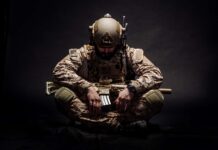
If I were American I would say things such as this: Can America rediscover America? Can Americans find America again?
by Francesco Sisci
There is at least one very strange feature in Washington’s meandering think-tank geography. The dozens of big and small institutes scattered around the capital all try to reinvent maps of the world.
Some sketch states and continents’ boundaries according to wealth; others look at religion; some more are worried about water, energy consumption, population, or women’s literacy, et cetera. A few want to keep borders and things in the world as they are; most would like to fix troubles, and almost none agrees with other institutes on how to do it – for good reasons.
 There is a huge amount of knowledge and research about how the world is or should be, and a cacophony of opinions on what should be done. This cacophony seems to be the real deep-seated reason for the United States’ often quixotic and at times schizophrenic foreign policy.
There is a huge amount of knowledge and research about how the world is or should be, and a cacophony of opinions on what should be done. This cacophony seems to be the real deep-seated reason for the United States’ often quixotic and at times schizophrenic foreign policy.
A cascade of contradicting opinions floods every department in Washington on any given day on any given issue.
It is a huge wealth for the country: the US knows more about any place than perhaps the people living in that place themselves. But it also has immense drawbacks, as it is hard for decision-makers to tell good from bad advice among all these experts.
Yet in this geography of opposing thoughts, there is very little effort spent on the fate of Arkansas, on the resurgences of religious sects in the Midwest, or on the future of US infrastructure. That is, research on domestic issues in Washington think tanks is not as extensive as in foreign affairs, and most of all, not as freewheeling. Nobody suggests remapping North Dakota or Wisconsin, and nobody proposes a police campaign against the spread of Christian fundamentalism.
Again, this phenomenon may have advantages, but surely it has handicaps, especially if one compares the dearth of grand advice on the domestic front with the glut of ideas about the world outside of America. This may also be because Americans vote and directly or indirectly pay for those think tanks, and thus they do not want their lives to be tampered with by think-tanks, and local congressmen have all the interest this will not occur. Non-Americans conversely do not vote in America and thus can be more easily fixed.
The difference is stark especially if, like this reporter, one observes from Beijing. Here scores of research centers and institutes, mostly secretive, concentrate on domestic affairs. Moreover, their suggestions and analysis – some boasting the fashionable title jimi, top secret – are allegedly very daring in internal affairs while remaining in many cases timid on foreign issues, which are anyway only broached by a minority.
This may also be because the Chinese do not vote, and the leadership needs to know what to do with the state. Foreign affairs remain mainly alien to most Chinese, for centuries self-centered, whereas Americans, a nation of immigrants and settlers, keep a keen eye on the “old countries”.
Yet, especially from Beijing, this lopsided approach seems to be growing dangerous. The US may be tempted to export its problems abroad, and despite the new boom of shale gas and the economic recovery many problems seem untouched and many potential solutions untapped. From a very foreign perspective, we immodestly tempt to highlight some points.
 If I were American I would say things such as this: Can America rediscover America? Can Americans find America again?
If I were American I would say things such as this: Can America rediscover America? Can Americans find America again?
These questions are at the heart of the deep spiritual crisis our nation suffers now. The United States is unique. It is not a people; it is a nation made out of a dream, and it is the closest thing on earth to a holy land without allegiances to a special god or a particular religion. It is a dream, for the Americans, and it is a dream for those in the world who often dream of being American or close to America.
In the last century, America won three wars, yet it did what no other victor did: it gave hope to those who lost, it tried to win over more people to its dream, and still it gives hope to all. This is where it all began for America, and possibly this is where America has to begin again.
This has to be done on a spiritual and practical level. In fact, the two elements are intertwined more than body and soul.
From Washington, from Wall Street, we heard the country was on the verge of bankruptcy. Entire states, like California, were bust. Now we hear America is doing better, but why? How? Actually, it is not very clear.
One issue is that it is not at all clear what America has and doesn’t have. The individual states and the union do not have balance sheets of their assets because the politicians prefer to leave this in the hands of appointed bureaucrats who manage these assets, belonging to the people, almost at their own discretion. Just to know what these assets are could be a first step in returning power to the people and restarting America.
Yet most Americans seem to not care about the lack of this knowledge or the waste of resources. It seems these problems cannot be tackled in America, that structural issues are untouchable.
But something is structurally changing and getting much better outside of America. In Asia, which some newspapers believe is the new frontier of the world, one lands in science-fiction airports and moves around in a network of seamless super-fast trains. The future looks at hand, life can be improved, and millions of Asians know it and see it.
In the US of the 1870s, the east-west railway made America perhaps more than the war of secession. It was the link to California, the leap to the Pacific Ocean, and the great opportunity to settle huge swathes of rich continental land in between. In the 1950s and 1960s, the US reached for the moon and, more concretely, it conquered the skies, setting up airplane routes that for the first time made traveling long distances easy and fast.
Now, 50 years later, US airports are crumbling for lack of maintenance and innovation; railways are so slow and inefficient that they look almost like caricatures of the Disneyland choo-choo trains. The United States needs new airports, new harbors, new fast trains. Without them, the US is doomed in the economic race with Asia – or with anybody.
The next US revolution could restart its infrastructure backbone to help common people, ideas, and goods to move around the country and generate wealth and well-being for everybody.
This will boost the industrial innovation the US needs and should drive the financial wealth accumulated in Wall Street. The new frontier is green energy, including new, better, more powerful and lasting batteries. This can bring about a new generation in the auto industry and a whole new series of electric and electronic appliances. The old car industry would be revolutionized and a new way of life for China and the world could begin.
The revolution in infrastructure and car-making means America and the world can have the boost of innovation on a par with that of the 1870s and that of 1920s all together, at the same time and on steroids. In the 1870s, America linked the Atlantic and the Pacific coasts and integrated the far west and the middle America into the union, which was then pretty much only the east coast. In the 1920s, the new car industry made Americans independent and able to move more freely, and it triggered the birth of sprawling cities with people commuting in and out of the urban centers.
Now, a fast railway system could bring closer metropolises that now stand apart – Chicago and New York, Los Angeles and San Francisco, Houston and Dallas – creating new living clusters. New electric cars could free the cities of pollution and noise, halve costs of private transportation, and break US dependence on oil. The byproducts of these changes are infinite and could easily dwarf the alterations brought to our lives by the Internet and mobile phones.
However, the enemies of these changes, as in the 1870s and the 1920s, are many. There are old industries fattening themselves on their privileges and trying to defend old monopolies even at the cost of dooming the country. These are what Chinese would call “vested interests” opposed to reforms.
There is just no reason to whine and cry about the US decline, the end of the world, or the apocalypse. America just needs to fight monopolies and politicians who do not want change to happen. America is a leader, and it can continue to lead. The US has the assets, the resources, the technology, and the ideas. Does it have the will?
Politicians can move for these concrete changes, lead them, and transform these revolutions into opportunities for the common people. This drive must expand the middle class, which has been shrinking and also driven away by political extremism. As the US has to fight to give a new life to the middle class, the backbone of the American dream, America has to find some new common ground in the middle of the political, partisan infighting.
When some Tea Party people present themselves as the blessed holders of the truth of American forefathers, they forget that those fathers and forefathers were first of all empiricists, pragmatic, and down to earth, like the vast majority of Americans. They forget they should represent all Americans, not a happy, blessed few.
But also when a president blames the opposition party for all the problems in his administration, he presents himself as only the leader of the Democrats or the Republicans and not as the leader he should be of all Americans. He should be the commander in chief of both Democrats and Republicans, the leader of his supporters and his opposition.
That is, America must rediscover its unity, its destiny, and its mission, which seems has broken down in the past couple of decades. This seems to be the true legacy of the American forefathers: the ability to move beyond the known frontiers and to think the unthinkable.
This can be the new mission of the Republican Party and of the Democratic Party together. Find new political unity in a mission to restart the infrastructure and technological revolution badly needed in America. This revolution can improve the livelihood of common people, recreate the middle class, and uphold the international role and mission of America in the world. All has to come together or all will fall apart together.
It can all start with new power to the people, knowing what Americans have and what they can do, and the will to think of America first, parties second. Think of the common people, not those with power and money, and create opportunities for jobs and a better future.
Then from outside, the American ability to reform itself can be the best recipe to begin to think of reforming the rest of the world.
Source: Asia Times
Francesco Sisci is a Senior Researcher associated with the Center for European Studies at the People’s University in Beijing. (Copyright 2014 Francesco Sisci).
See also :
All content herein is owned by author exclusively. Expressed opinions are NOT necessarily the views of VNR, authors, affiliates, advertisers, sponsors, partners, technicians, or VT Network. Some content may be satirical in nature.
All images within are full responsibility of the author and NOT VNR.
Read Full Policy Notice - Comment Policy




























